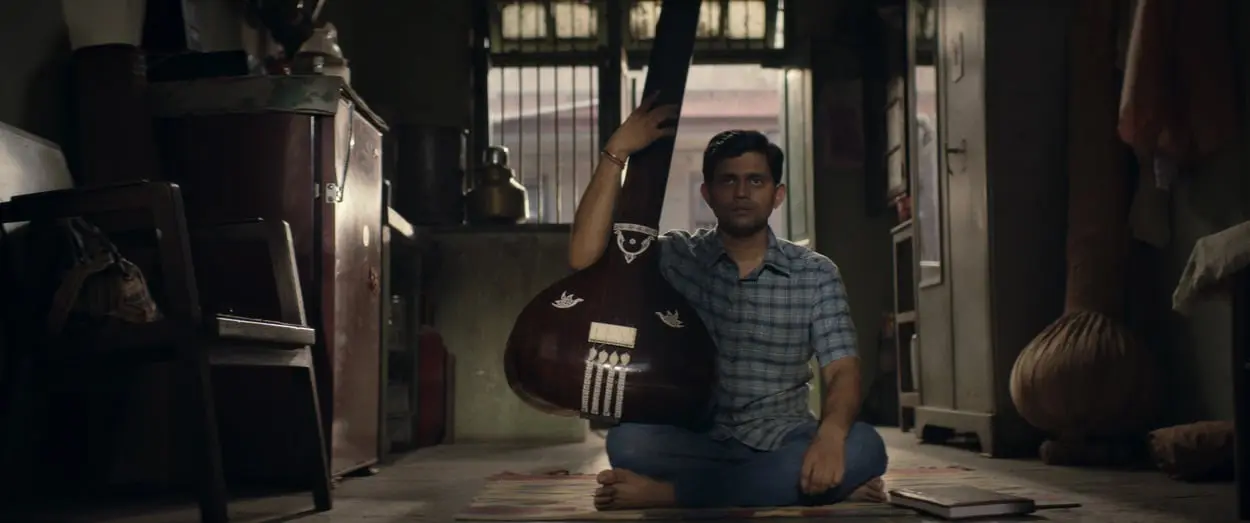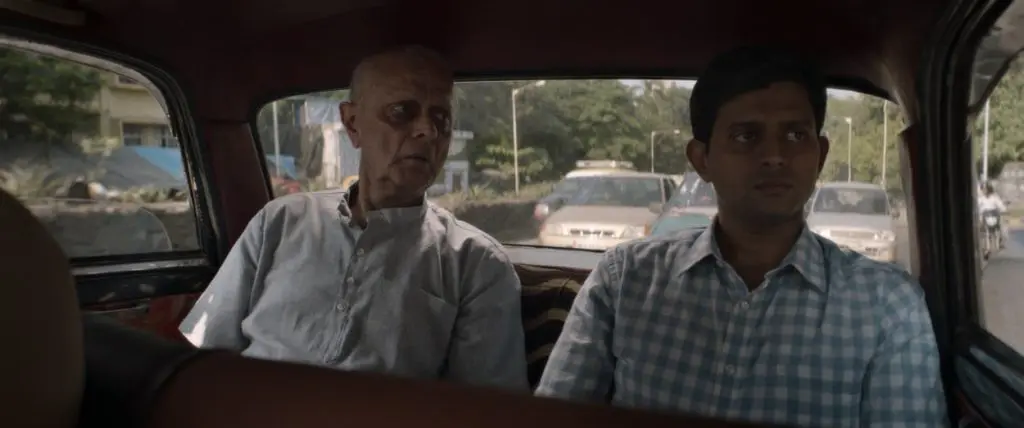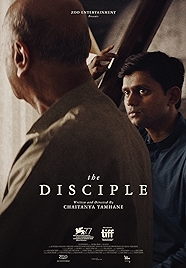If you want it enough you can have it. Believe. Be passionate. Follow your dream. Movies are often insistent on this point. The Disciple begs to differ.
You wouldn’t guess from his face, but Sharad (Aditya Modak) has it all. He plays raags, as this Mahrathi-language film calls them, ragas, most likely, if you’re an English speaker. His guru (Aran Dravid) is highly respected, deeply knowledgeable, kindly and technically supremely skilled. And as we can see in The Disciple’s opening scene, he also has talent.
In flashback to Sharad’s childhood we see a supporting, nurturing home life, with a loving mother. And if Sharad’s passionate, inspiring father is a touch cajoling in his encouragement of Sharad’s pursuit of Indian classical music, it’s no more so than all those Western parents and their insistence on piano practice.
Sharad has a part-time job collating old tapes and cassettes of obscure Indian classical musicians and compiling them into reissue CDs. In his spare time he goes to yoga, where the meditative practice helps clear the mind so that he can better perform the improvisational raags. Bombing home on his motorbike, through deserted city streets, he listens to tapes by his guru’s guru, the legendary Maai, on how to approach music mentally, spiritually, philosophically.
His life is music. His background and foreground, history and present, family and friends, on-duty and off-duty, music music music.
Writer/director Chaitanya Tamhane’s subtle and eventually rather heartbreaking film divides up into four parts. In the glimpses we get of Sharad’s childhood, the world is there for the taking. In 2006, where the bulk of the film takes place, he’s a young man who can see the glittering prizes on offer. One more jump forward, to maybe 2016, and the now-moustachioed Sharad has hit some kind of wall – Indian classical music is not working out for him and even his guru is voicing concerns.
Glimpsed only for a moment right at the end we get the present day where, with a flourish, Tamhane spells out what the rest of the film has been leading us towards. Unlike the beggar singing for a rupee on Sharad’s commuter train home, Sharad has no talent. And no amount of wanting it, being prepared, giving your all, your passion, your background, your environment or your inspiring TV-ready backstory can fill that gap.
Deliver unwelcome news stealthily seems to be Tamhane’s philosophy and his film has a lily-pond serenity to it which means Sharad’s tough life lesson could go unmissed, though there are nudges in that direction.
Sharad’s face, for one, poor Aditya Modak running through many variations on the sad sack without being too explicit. Sharad’s rejection by a pretty fellow player in his teen years, the urgent masturbating, but most of all the presence, hovering at the edges, of the TV show Fame India, in which we see a girl from nowhere becoming an overnight sensation because she’s got the one thing Sharad hasn’t. A gift.
The film glides along on castors. No shouting. No exposition. Calm. It’s all going on yet nothing appears to be really happening – Sharad practises, he meets his guru, he plays and sings, he teaches. Those long, single takes of Sharad going home on his bike through silent city streets capture the mood and philosophy of the film.
It sounds miserable and it is miserable. And yet Tamhane gives us a crumb of comfort at the end. It’s not exactly “follow your dream” so much as “be happy for what you’ve got”. Which is far less “yay, me!”, admittedly, but a life lesson all the same.
Chaitanya Tamhane’s last film, Court, is available to watch or buy at Amazon
I am an Amazon affiliate
© Steve Morrissey 2021


